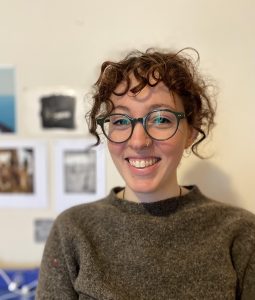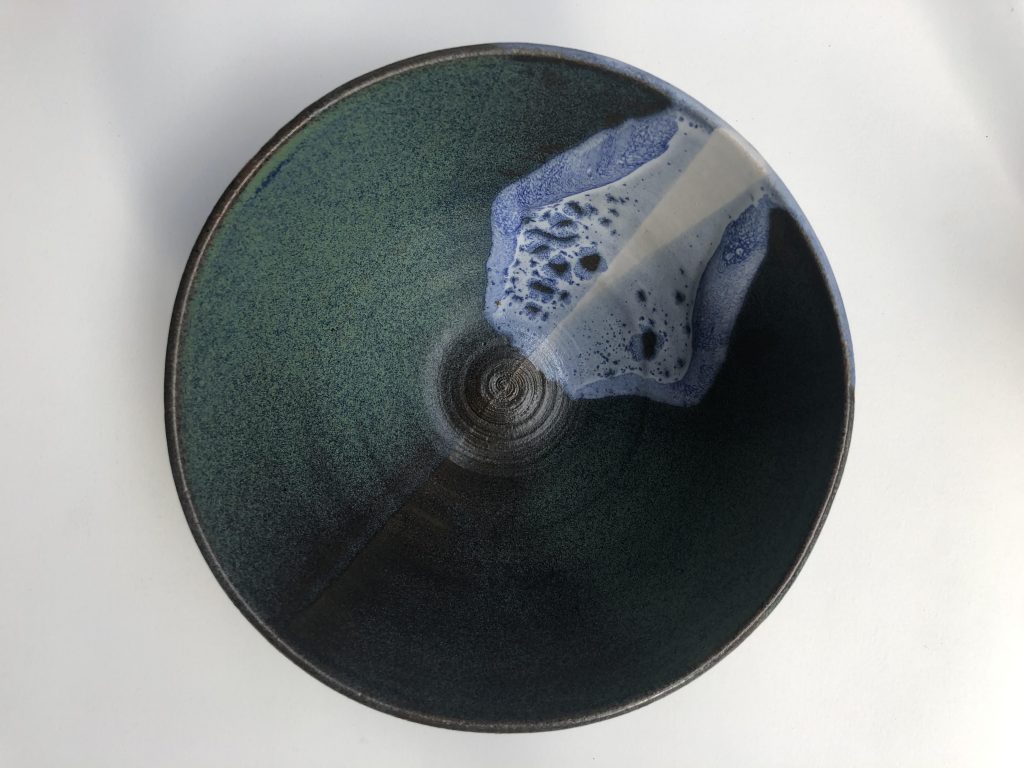In this Featured Member series, AATA celebrates the work of our members. During the coronavirus pandemic, we are inviting members to share their experiences about how their professional and personal lives have changed.
May 5, 2021
Tell us about yourself
 In July 2020 I graduated with a MSc in art psychotherapy from Queen Margaret University in Edinburgh, Scotland. I relocated to New York shortly after, and I am currently working toward my ATR and LCAT licensure in a domestic violence unit as well as part of a private practice. I am interested in trauma-informed work with a comprehensive approach. I have facilitated individual and group art therapy sessions with people of all ages who were coping with complex trauma, PTSD, BPD, bereavement, depression, and/or anxiety. I believe strongly in the power of art aiding communication and finding ways to focus and understand the integration of mental and physical health.
In July 2020 I graduated with a MSc in art psychotherapy from Queen Margaret University in Edinburgh, Scotland. I relocated to New York shortly after, and I am currently working toward my ATR and LCAT licensure in a domestic violence unit as well as part of a private practice. I am interested in trauma-informed work with a comprehensive approach. I have facilitated individual and group art therapy sessions with people of all ages who were coping with complex trauma, PTSD, BPD, bereavement, depression, and/or anxiety. I believe strongly in the power of art aiding communication and finding ways to focus and understand the integration of mental and physical health.
Navigating the ATR-P and DOE Limited Permit process as an international graduate was a lengthy and difficult task. Without the additional help of my professor and AATA I would not have been able to complete it, and I am very grateful for the assistance that so many people provided. I hope that moving forward the licensing process will become more accessible for international degree holders, but in the meantime to whoever is going through the process and reading this – you can do it! Please feel free to reach out to me if you are an international student and need help. There are unfortunately many hoops to jump through, but it will work out.
In what ways have your clients been impacted by COVID-19?
I was finishing my university clinical work and dissertation when the pandemic began. I worked together with my colleagues and supervisors to provide appropriate and creative ending/holding sessions for my clients over the phone. Although the pandemic brought mass tragedy, it also proved the various ways in which we can offer support. Telehealth presents a unique option for people who are not able to leave their home and it is my hope that the creative steps we all took to provide care for our clients is the beginning of more accessible healthcare models.
How are you managing your own stress during this time?
In terms of my own stress, I felt it was particularly important to make space for response art after each session as I was running telehealth sessions in my bedroom. Reflecting on my boundaries both emotionally and physically allowed an opportunity to connect with self-care as well as my clients in a way that I may not have interacted with before. I feel this process expanded my understanding of what it means to “be with the client” in their struggle.
How have race related issues, social justice, and racism informed or impacted your work as an art therapist?
I feel that this is an ongoing question and that all issues are race related; anti-racism should always inform our work as racism will always impact our work. The mental health field is capable of causing severe racial harm, which often is not addressed. As a white therapist, I will always have more to unlearn, and I should always be combating entrenched white supremacy and ideologies. This includes expanding my reading lists beyond the work of white men and going to cultural humility trainings, but it also includes looking inward. It is integral that I acknowledge I have caused racial harm and unfortunately, I likely will again. I think about this last part a lot. Being a safe healthcare provider includes recognizing I might not be able to provide a safe space for a client or how to challenge a client on a racist ideology – what I represent as a therapist needs to be intentionally addressed.
Ultimately, I am a product of a racist society. While that might not directly be my fault, it is my responsibility to continuously deconstruct the violence that exists in my own whiteness and to understand how to safely practice cultural humility and anti-racism in response to that.
My ongoing reflection is facilitated by several educators, therapist, and summits such as Living in Empathy, Inclusivetherapist.com, the Racism and Mental Health Symposium, Layla F. Saad, Erika Hart, Depressed While Black, Dr. Joy DeGruy, and many others.

“Untitled,” by Sally Rabinowitz, stoneware, glazed, 15×10 cm
